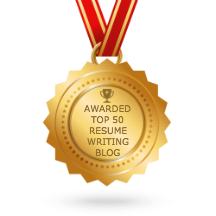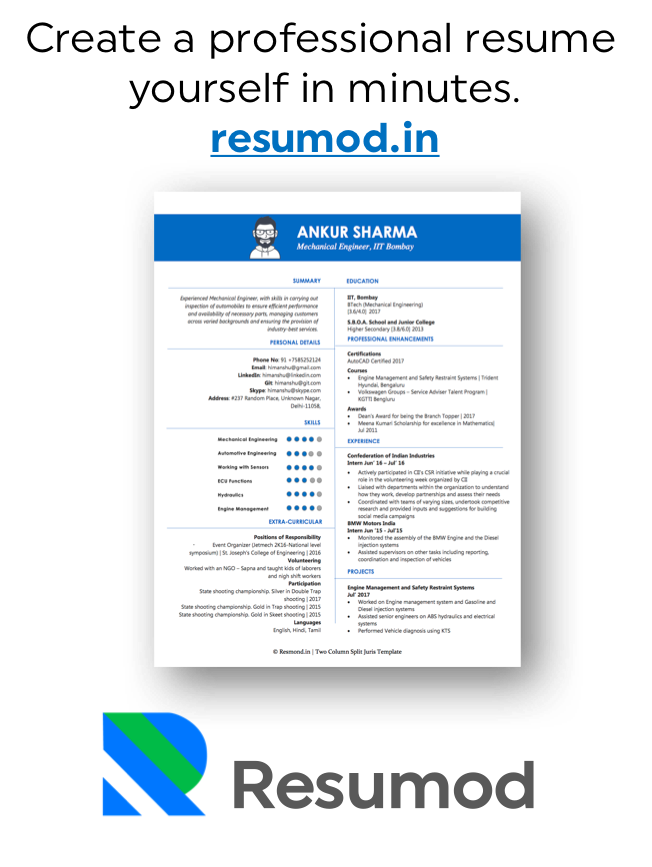A resume is important while applying for a job or even scholarship. Obviously, it should include your academic qualifications. You may have an extreme degree from a topnotch institute or a dropout. Some of us could be seeking jobs as students or awaiting results from the last exam. Regardless of which category of job seeker you are, you need to include your education details in your resume. And if done smartly, you can leverage your education to get that interview call instantly.
Let me guide you on how to put your education to work on a resume and attract the attention of potential employers.
Importance of Resume
A resume is a distinct document. It differs from a Curriculum Vitae and Bio-Data in many ways. Simply put, your resume is a summary of your education and work experience, if any. Additionally, it features other details like your name, address and contact details, references and achievements.
Focusing on educational achievements and work experience holds the key to writing a great resume. By utilising some of these tips and tweaks, you can write a job-winning resume easily.
Putting Education to Work
Regardless of whether you have experience in a particular role or you are just a fresher, these steps should help create a resume that employers may find irresistible.
Clear Personal Statement
A ‘Personal Statement’ is something most job seekers fail to include on their resume. A personal statement speaks about your own vision and mission in any career. It appears on top of the resume.
A good personal statement ideally should consist of three or four sentences. Here, speak briefly about your educational qualifications, work experience and what you expect from any career.
Since a fresher cannot write work experience, you can focus on your career objectives and reasons for opting for a specific educational degree or stream.
Usually, employers and recruiters first read the personal statement on your statement. You can put your education to work on your resume by highlighting the reasons behind choosing a particular field of studies.
Education v/s Work Experience
There are several debates over what should feature first on a resume: education or work experience. Personally, I favour putting work experience before education. Unless you are a fresher, of course.
Let me explain why. If you are awaiting results of a final year exam, do not have high academic qualifications or are a dropout, educational qualifications may not sound so impressive. Writing about your work experience will cover this deficiency to a great extent.
Your education will generally match your skills which makes it essential. This is where the importance of education is visible. Usually, employers look for specific skills and abilities while hiring persons for any job. Because they are keen to know how much value can you bring to their business. If your experience matches skills an employer looks for, they will ignore your academic records.
However, indicate clearly how your education helped you in getting current and previous jobs. Blend these facts with your experience to create a winning resume.
Highlight Your Education
Should you hold a superb degree from a reputed university, it makes sense to put your education in your resume differently. Instead of merely focusing on your academic achievements, also include projects taken while studying.
Highlight your scores in the final exam with particular emphasis on subjects where you got top marks.
Explicitly mention why topping in specific subjects is vital to the role or post you are applying. If you are working or have experience in the field, provide examples of how your qualifications came handy.
Usually, the education section is the shortest in any great resume. Hence, keep it that way- short and precise. But highlight projects and experiences since they will impress a recruiter more than mere marks and scores.
Provide Verifiable Information
Unknown to you, an employer may seek background verification of your education. Employee background verification checks are something that is gaining ground worldwide and in India. Unfortunately, hundreds of job seekers tend to fudge or provide partially true or incorrect information about their education.
If you really want to put your education to work on a resume, avoid this malpractice. You might lose an opportunity to work for a great employer, despite having the necessary skills and experience.
It is relatively easy to ensure you do not fail an employee background check. Directly provide photocopies of your mark sheets, degree certificates and other relevant documents from various schools, colleges and universities with your resume.
Alternatively, indicate your roll number, educational degree certificate number provided by the examinations authority and other details. If these documents are missing, it is still possible to put your education to work on your resume. Be very specific about the course you attended, university and year of passing. These details are sufficient for any employee background check agency.
Include Extracurricular Activities
Extracurricular activities are those you perform within an educational institute or outside. Usually, these activities reflect your education and hobbies. Therefore, it is essential to include these on your resume too.
You can get extra mileage from extracurricular activities that are related to your field of study. For example, being a member of a science club is a clear indicator of your interest in the field. Volunteering for community projects that require engineering speaks well of your efforts to gain more skills.
In most cases, you would have certificates of participation or won prizes in extracurricular activities. Mention these briefly on your resume along with educational qualifications. These certificates give weight to your academic achievements and make your education impactful.
Conclusion
There are a couple of more tips you can try.
- One is to include references and contact details of any member of the faculty at educational institutes you attended.
- Another is to attach letters from your school, college or university that speak highly about you as a student.
I will conclude by adding, education and experience work in synergy on a good resume. Use a format where both are visible and can create an equal impact for a recruiter. For freshers, experience does not matter. Instead, speak about how you intend using the education can help you in a particular role.



